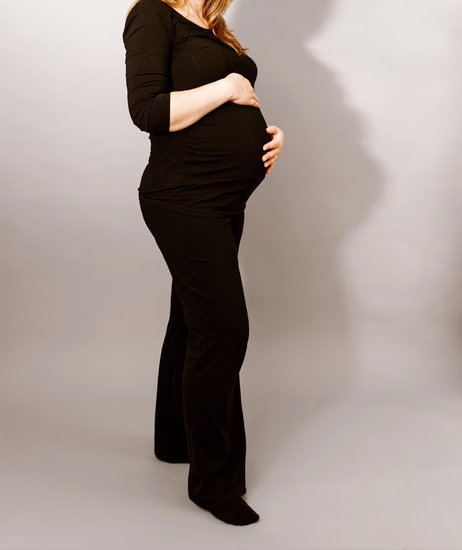Pregnancy hemorrhoids are a common occurrence for many expectant mothers. These swollen and inflamed veins in the rectum can cause discomfort and pain, making pregnancy even more challenging. Understanding the causes, symptoms, prevention, and treatment options for pregnancy hemorrhoids is essential for women who may be experiencing this uncomfortable condition.
During pregnancy, the increased pressure on the pelvic area and the enlarged uterus can lead to the development of hemorrhoids. The hormonal changes and constipation often associated with pregnancy can also contribute to this condition. It’s important for women to be aware of the signs and symptoms of pregnancy hemorrhoids and to know how to manage them effectively.
In this article, we will explore in detail what pregnancy hemorrhoids are, why they occur during pregnancy, how to identify their symptoms, and what factors contribute to their development. We will also discuss tips for preventing their occurrence and various treatment options available for managing the discomfort caused by pregnancy hemorrhoids. Additionally, we will provide support and advice for coping with the physical and emotional challenges associated with this condition during pregnancy.
Symptoms of Pregnancy Hemorrhoids
Pregnancy hemorrhoids are a common condition that many women experience during pregnancy. These swollen veins in the rectum and anus can cause discomfort and pain, making it important to recognize the symptoms in order to address them effectively.
Some of the most common symptoms of pregnancy hemorrhoids include itching, pain or discomfort in the anal area, and bleeding during bowel movements. It is crucial for pregnant women to be aware of these symptoms so they can take appropriate steps to manage the condition.
In addition to the physical symptoms, pregnancy hemorrhoids can also impact a woman’s emotional well-being. The discomfort and uncertainty surrounding this condition can lead to feelings of frustration and embarrassment. It is important for pregnant women experiencing hemorrhoids to seek support from their healthcare provider and loved ones in order to cope with the emotional challenges that may arise.
It is recommended for pregnant women to pay close attention to any changes they experience in their body, especially during bowel movements, as this can be an indicator of hemorrhoids. By being aware of the signs and symptoms of pregnancy hemorrhoids, women can take proactive measures to address this condition before it worsens.
| Symptoms | Description |
|---|---|
| Itching | This is a common symptom of pregnancy hemorrhoids and can cause significant discomfort. |
| Pain or Discomfort | Women may experience pain or discomfort in the anal area as a result of swollen veins. |
| Bleeding During Bowel Movements | One of the most noticeable symptoms, bleeding during bowel movements may indicate the presence of pregnancy hemorrhoids. |
Causes of Pregnancy Hemorrhoids
During pregnancy, the increased pressure on the pelvic area and the veins in the lower part of the body can lead to the development of hemorrhoids. These swollen blood vessels in the rectum are often caused by a combination of factors, including hormonal changes, increased blood volume, and the growing uterus putting pressure on the pelvic floor. Some specific causes of pregnancy hemorrhoids include:
- Constipation: Straining during bowel movements due to constipation can put additional pressure on the veins in the rectal area, leading to hemorrhoids.
- Weight gain: The added weight of pregnancy can also contribute to increased pressure on the veins in the lower part of the body.
- Genetics: Some women may be more predisposed to developing hemorrhoids during pregnancy if they have a family history of this condition.
- Hormonal changes: The hormonal fluctuations that occur during pregnancy can weaken the walls of blood vessels, making them more susceptible to swelling and inflammation.
It’s important to note that while these factors can contribute to the development of hemorrhoids during pregnancy, not all pregnant women will experience this condition. However, being aware of these potential causes can help women take proactive steps to prevent or manage pregnancy hemorrhoids.
In addition to these physical factors, emotional stress and anxiety during pregnancy can also play a role in exacerbating hemorrhoid symptoms. This highlights the importance of addressing both physical and emotional well-being when it comes to managing pregnancy-related discomforts such as hemorrhoids.
Prevention of Pregnancy Hemorrhoids
Pregnancy can bring about a variety of physical discomforts, including the development of hemorrhoids. These swollen veins in the rectum and anus are a common occurrence during pregnancy, affecting around 25-35% of pregnant women. The increased pressure on the pelvic area, as well as hormonal changes that relax the veins, are major contributing factors to the development of pregnancy hemorrhoids.
One key strategy for preventing pregnancy hemorrhoids is to maintain good bowel habits. This includes consuming a high-fiber diet with plenty of fruits, vegetables, and whole grains, as well as staying hydrated by drinking plenty of water. Additionally, avoiding straining during bowel movements can help minimize the risk of developing hemorrhoids.
Regular physical activity can also play a crucial role in preventing pregnancy hemorrhoids. Engaging in moderate exercise such as walking or swimming helps promote healthy blood circulation and prevents constipation, which can contribute to the development of hemorrhoids. Furthermore, taking breaks from prolonged sitting or standing can reduce pressure on the veins in the rectal area.
In addition to these preventive measures, it’s important for pregnant women to avoid gaining excess weight during pregnancy. Maintaining a healthy weight through proper diet and exercise not only reduces the risk of developing pregnancy hemorrhoids but also contributes to overall maternal health and well-being.
| Preventive Measures | Description |
|---|---|
| Maintaining Good Bowel Habits | Consuming high-fiber diet, staying hydrated, and avoiding straining during bowel movements. |
| Regular Physical Activity | Engaging in moderate exercise to promote healthy blood circulation and prevent constipation. |
| Avoiding Excess Weight Gain | Maintaining a healthy weight through proper diet and exercise. |
Treatment Options for Pregnancy Hemorrhoids
Pregnancy brings about a multitude of changes to a woman’s body, and unfortunately, one of the less pleasant side effects can be the development of hemorrhoids. These swollen veins in the rectal area can cause discomfort and pain, especially during pregnancy. Fortunately, there are several treatment options available for managing and alleviating the discomfort of pregnancy hemorrhoids.
When it comes to managing pregnancy hemorrhoids, there are a variety of methods that can provide relief. It’s important to consult with a healthcare professional before starting any treatment to ensure it is safe for both you and your baby. Some common treatment options include:
1. Over-the-counter topical creams or ointments: These products can help reduce swelling and provide relief from itching and discomfort.
2. Witch hazel pads: Applying witch hazel pads to the affected area can help soothe inflammation and provide relief.
3. Sitz baths: Soaking in warm water for 10-15 minutes several times a day can help alleviate discomfort and promote healing.
4. High-fiber diet: Increasing fiber intake can help soften stools, making them easier to pass and reducing strain on the rectal area.
In addition to these treatment options, it’s important to practice good hygiene and avoid constipation during pregnancy, as these factors can exacerbate pregnancy hemorrhoids. By taking proactive measures and seeking appropriate treatment, women can effectively manage the discomfort associated with pregnancy hemorrhoids.
Lifestyle Changes
During pregnancy, changes to the body can result in an increased risk of developing hemorrhoids. Making adjustments to diet, exercise, and daily habits can play a significant role in preventing and relieving pregnancy hemorrhoids.
Dietary Changes
One of the key factors in preventing pregnancy hemorrhoids is maintaining a healthy and balanced diet. Consuming sufficient fiber through fruits, vegetables, whole grains, and legumes can help ensure regular bowel movements, reducing the likelihood of straining during bowel movements which can exacerbate hemorrhoids. Additionally, staying hydrated by drinking plenty of water can also contribute to overall digestive health and prevent constipation.
Exercise Routine
Regular physical activity during pregnancy can also aid in preventing hemorrhoids. Engaging in low-impact exercises such as walking, swimming, or prenatal yoga can help promote circulation and reduce pressure on the rectal area. It’s important to consult with a healthcare provider before starting any new exercise routine during pregnancy to ensure safety for both mother and baby.
Daily Habits
Incorporating good bathroom habits into your daily routine can make a significant difference in preventing pregnancy hemorrhoids. Avoiding prolonged periods of sitting on the toilet and not straining during bowel movements are essential practices for maintaining healthy bowel function. Using soft, unscented toilet paper and practicing proper hygiene after using the bathroom also contribute to comfort and cleanliness for those experiencing pregnancy hemorrhoids.
By making these adjustments to diet, exercise, and daily habits, pregnant individuals may reduce their risk of developing hemorrhoids or alleviate discomfort associated with existing ones. However, it’s essential to consult with a healthcare professional before making any significant changes during pregnancy. If symptoms persist or worsen despite lifestyle adjustments, medical evaluation may be necessary for proper management of pregnancy hemorrhoids.
When to Seek Medical Help
Seeking medical help for pregnancy hemorrhoids is an important step in managing the discomfort and potential complications associated with this condition. While many cases of pregnancy hemorrhoids can be managed at home with lifestyle changes and over-the-counter remedies, there are certain situations where it’s necessary to consult a healthcare professional for further evaluation and treatment.
Severe Pain and Discomfort
If you are experiencing severe pain, discomfort, or persistent bleeding from your pregnancy hemorrhoids, it’s crucial to seek medical help. Your healthcare provider can assess the severity of your condition and recommend appropriate treatment options to alleviate your symptoms.
Difficulty Managing Symptoms
Some women may find that their pregnancy hemorrhoids are difficult to manage using over-the-counter medications or home remedies. In these cases, consulting a healthcare professional can provide access to more effective treatments such as prescription medications or procedures to relieve symptoms.
New or Worsening Symptoms
If you notice new or worsening symptoms associated with your pregnancy hemorrhoids, it’s essential to seek medical help. This includes changes in the size, color, or consistency of the hemorrhoids, as well as the development of additional symptoms such as fever or chills.
Remember that consulting a healthcare professional for pregnancy hemorrhoids is not only about finding relief from physical discomfort but also about ensuring the overall health and well-being of both you and your baby during this crucial time. It’s important to be proactive in seeking medical help when needed to address any concerns related to pregnancy hemorrhoids.
Coping With Pregnancy Hemorrhoids
In conclusion, pregnancy hemorrhoids can be a common and uncomfortable issue for many expecting mothers. The physical discomfort and emotional stress that can accompany this condition are valid concerns that should not be overlooked. It is important for women to understand that they are not alone in dealing with pregnancy hemorrhoids, and there are support systems and coping strategies available to help manage this challenging aspect of pregnancy.
Seeking guidance from healthcare professionals, such as obstetricians or midwives, can provide reassurance and effective treatment options for pregnancy hemorrhoids. These professionals can offer tailored advice on lifestyle changes, preventative measures, and safe treatment options to alleviate the discomfort associated with hemorrhoids during pregnancy.
Additionally, connecting with other women who have experienced or are currently dealing with pregnancy hemorrhoids can offer valuable support and understanding. Online forums, local support groups, or seeking out friends and family members who have gone through similar experiences can provide a sense of solidarity and comfort during this challenging time. By taking proactive steps to address the physical symptoms and emotional impact of pregnancy hemorrhoids, women can focus on enjoying the journey of pregnancy to the fullest extent possible.
Frequently Asked Questions
How Do You Get Rid of Hemorrhoids When You’re Pregnant?
Hemorrhoids during pregnancy can be managed through various methods. It’s important to eat a high-fiber diet, stay hydrated, and avoid sitting or standing for long periods. Using over-the-counter creams or ice packs can also provide relief.
How Long Do Pregnancy Hemorrhoids Last?
Pregnancy hemorrhoids can last throughout the duration of the pregnancy and even for some time post-partum, depending on how well they are managed. They may resolve on their own after delivery, but can persist if not treated properly.
What Do Hemorrhoids in Pregnancy Feel Like?
Hemorrhoids in pregnancy can cause discomfort, itching, pain, and swelling around the anal area. Some women may also experience bleeding during bowel movements. These symptoms can range from mild to severe, impacting daily activities.

Welcome to my fertility blog. This is a space where I will be sharing my experiences as I navigate through the world of fertility treatments, as well as provide information and resources about fertility and pregnancy.





